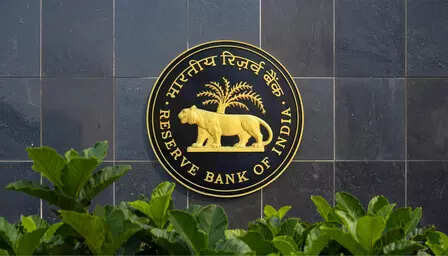The Reserve Bank of India has officially designated the Finance Industry Development Council (FIDC) as the self-regulatory organisation (SRO) for Non-Banking Financial Companies (NBFCs). This pivotal move aims to significantly enhance compliance, stimulate innovation, and drive overall sector growth. The decision follows a rigorous application process, with FIDC being the sole successful applicant.
A New Sheriff in Town for Indian NBFCs: FIDC to Take the Reins
The world of Indian Non-Banking Financial Companies (NBFCs) is about to experience a significant shift. For years, these financial institutions, crucial for extending credit to underserved sectors, have largely navigated the regulatory landscape with a degree of autonomy. Now, that’s changing. The Finance Industry Development Council (FIDC) is poised to become the Self-Regulatory Organisation (SRO) overseeing NBFCs. It’s a move that promises greater stability, transparency, and accountability within the sector. But what does this actually mean for NBFCs, borrowers, and the Indian economy as a whole?
The Reserve Bank of India (RBI), the country’s central bank and ultimate financial regulator, has given its nod to the FIDC, signaling a new era of self-regulation, albeit under the watchful eye of the RBI. The decision reflects a growing emphasis on robust governance and responsible lending practices within the NBFC space.
Why the Need for an SRO?
NBFCs play a vital role in India’s financial ecosystem, particularly in reaching segments that traditional banks often find difficult to serve. From small businesses in rural areas to individuals seeking microloans, NBFCs provide crucial access to credit, fueling economic growth and financial inclusion. However, the rapid growth of the NBFC sector has also brought challenges, including concerns about asset quality, risk management, and adherence to ethical lending practices.
Think of it like a bustling marketplace. Without some basic rules and guidelines, chaos can quickly ensue. An SRO like FIDC aims to establish those rules, ensuring fair play and protecting the interests of all stakeholders. It provides a structured framework for NBFCs to operate within, promoting responsible growth and preventing potential crises. The goal is to preempt problems before they escalate, fostering a more resilient and trustworthy financial environment.
FIDC: More Than Just a Watchdog
The FIDC’s role extends beyond simply policing NBFCs. It’s envisioned as a facilitator, guiding and supporting them in adopting best practices, enhancing their risk management capabilities, and navigating the evolving regulatory landscape. This proactive approach aims to strengthen the overall health of the sector, making it more sustainable and better equipped to weather economic storms. The organization aims to promote responsible FIDC oversight for NBFCs while also understanding the specific challenges these financial entities face.

One key aspect of FIDC’s mandate will be to establish a code of conduct for NBFCs, outlining ethical guidelines for lending, recovery, and customer service. This will help ensure that borrowers are treated fairly and that NBFCs operate with integrity and transparency. FIDC will also play a crucial role in resolving disputes between NBFCs and their customers, providing a fair and efficient mechanism for addressing grievances.
Implications for Borrowers and the Economy
The increased oversight of NBFCs is ultimately good news for borrowers. With stronger regulations and greater transparency, borrowers can have more confidence in the fairness and reliability of NBFCs. This can lead to increased access to credit, particularly for those who may have been excluded from traditional banking services.
For the Indian economy as a whole, a stable and well-regulated NBFC sector is essential for sustained growth. By promoting responsible lending practices and preventing financial instability, FIDC’s oversight can contribute to a more robust and resilient financial system. This, in turn, can boost investment, create jobs, and improve the overall economic well-being of the country.
Consider, for example, the impact on small businesses. If NBFCs are operating under a clear and ethical framework, small business owners are more likely to access the financing they need to grow and create jobs. This ripple effect can have a significant impact on local economies and contribute to overall economic prosperity. You can also read more about the impact of financial regulations on fintech innovation in India here.
Looking Ahead
The appointment of FIDC as the SRO for NBFCs marks a significant step forward in the evolution of India’s financial sector. It reflects a commitment to responsible growth, financial inclusion, and stability. The effectiveness of FIDC’s oversight will depend on its ability to balance the need for regulation with the need for innovation and flexibility within the NBFC sector.
While challenges undoubtedly lie ahead, the potential benefits of a well-regulated NBFC sector are immense. By fostering a culture of transparency, accountability, and ethical lending, FIDC can help ensure that NBFCs continue to play a vital role in driving India’s economic growth and empowering its citizens. The coming months will be critical as the FIDC establishes its operational framework and begins its journey as the primary watchdog for NBFCs across the nation. Its success will be measured not only by its ability to enforce regulations but also by its capacity to foster a thriving and responsible NBFC ecosystem that benefits all stakeholders.







